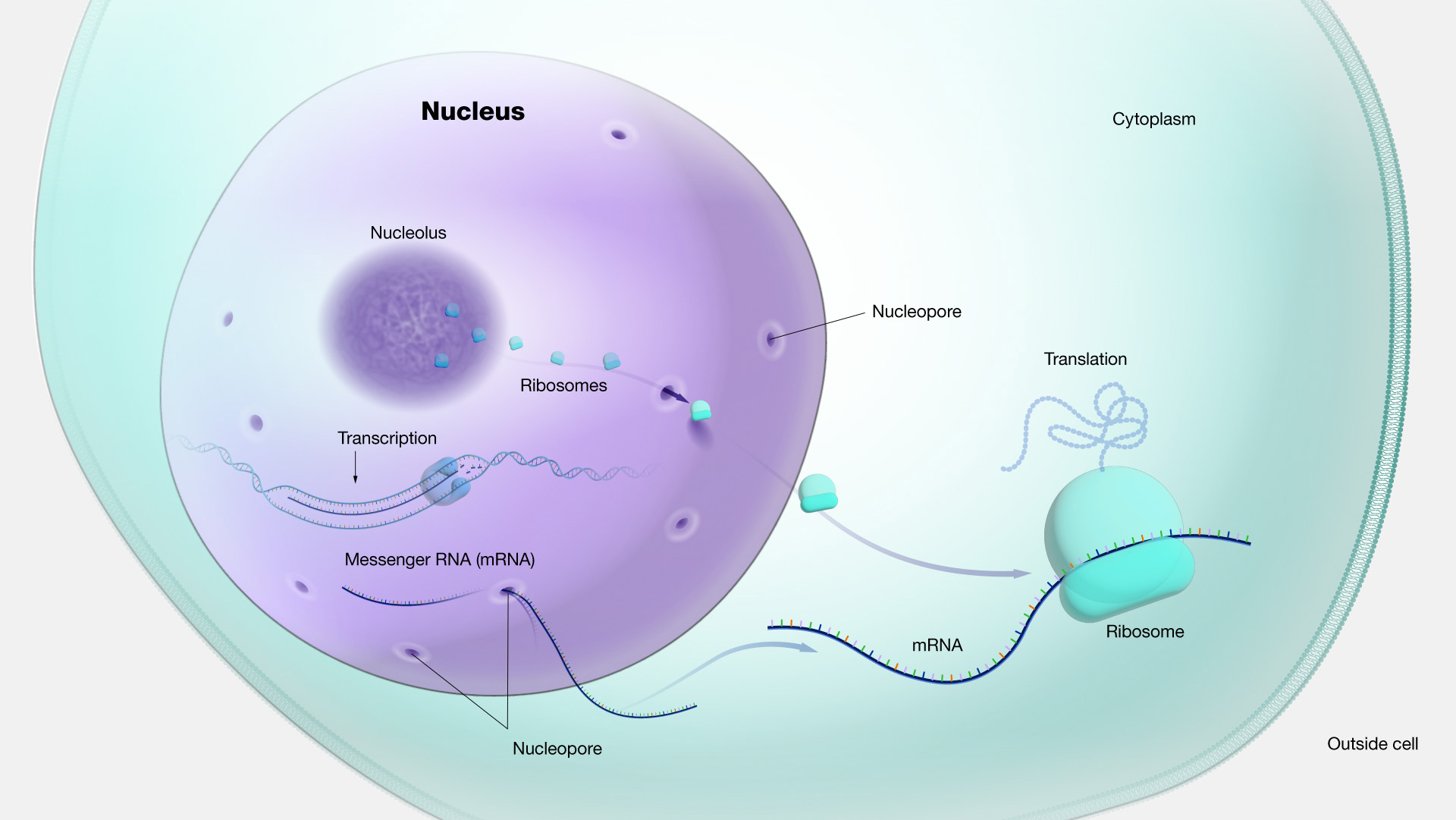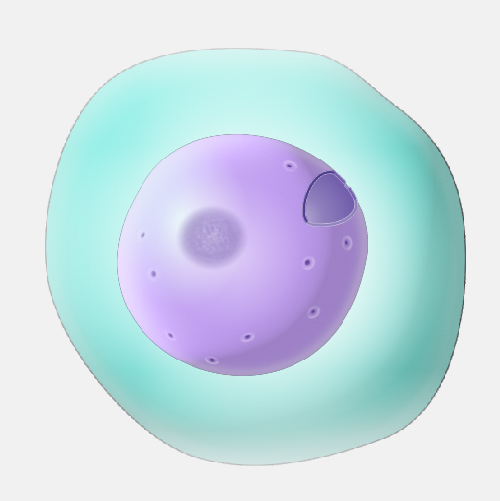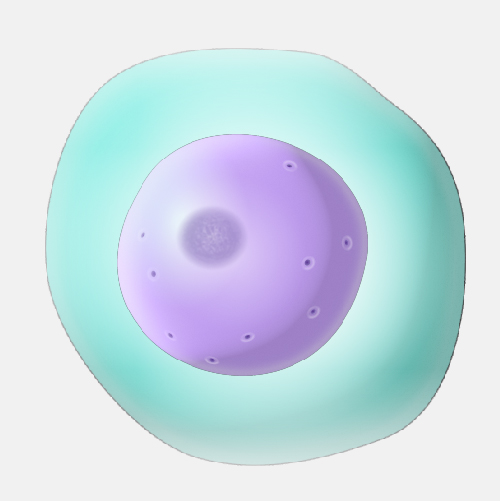
Nucleus
Definition
A nucleus, as related to genomics, is the membrane-enclosed organelle within a cell that contains the chromosomes. An array of holes, or pores, in the nuclear membrane allows for the selective passage of certain molecules (such as proteins and nucleic acids) into and out of the nucleus.

Narration
The nucleus is one of the most obvious parts of the cell when you look at a picture of the cell. It's in the middle of the cell, and the nucleus contains all of the cell's chromosomes, which encode the genetic material. So this is really an important part of the cell to protect. The nucleus has a membrane around it that keeps all the chromosomes inside and makes the distinction between the chromosomes being inside the nucleus and the other organelles and components of the cell staying outside. Sometimes things like RNA need to traffic between the nucleus and the cytoplasm, and so there are pores in this nuclear membrane that allow molecules to go in and out of the nucleus. It used to be thought that the nuclear membrane only allowed molecules to go out, but now it's realized that there is an active process also for bringing molecules into the nucleus.




